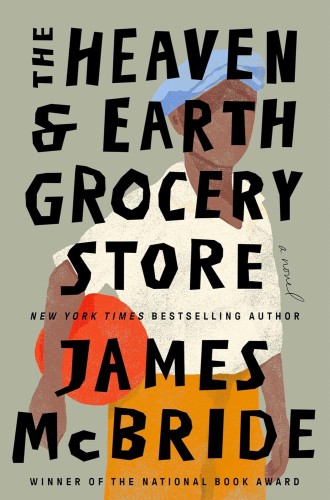
The Heaven and Earth Grocery Store
A Novel
How could anyone not fall in love with a novel inspired by the novelist’s experiences working as a counselor at a camp that created a loving and inclusive environment for children with severe disabilities? The dedication of James McBride’s sixth novel to Sy Friend—who directed the Variety Club Camp for Handicapped Children in Worcester, Pennsylvania, during the four summers McBride worked there as a young man—is one of many reasons to adore the book.
The Heaven and Earth Grocery Store may initially appear to be a feel-good novel about heartwarming relationships between unlikely comrades in a small town. But it quickly becomes clear that the characters are full of actual human nature—good and bad, altruistic and selfish at the same time. Characters who seem evil are given a backstory to allow the reader some sympathy. Characters who seem good emerge as multifaceted rather than purely angelic. The shading of humanity beyond simple binaries is one of the things McBride, son of a White Jewish mother and a Black Christian father, describes so well.
Much of the novel’s action is centered around Moshe, a Jewish musical theater owner in Pottstown, Pennsylvania, and his limping wife, Chona, who runs the eponymous Heaven and Earth Grocery Store—which fails to make a profit since Chona extends credit to so many in need. The store is situated in Chicken Hill, the town’s Black and Jewish neighborhood. Most of the Jews have moved farther out, and Moshe wishes to as well. But Chona will not be moved from her store, needful as she is to extend kindness to all those in her orbit. Moving back and forth in time between 1972 and the 1930s, the story includes in the sweep of its action the owners of the juke joint in town, the janitors and carpenters, and the local doctor who is a member of the Klan, recognized easily through his robes.




